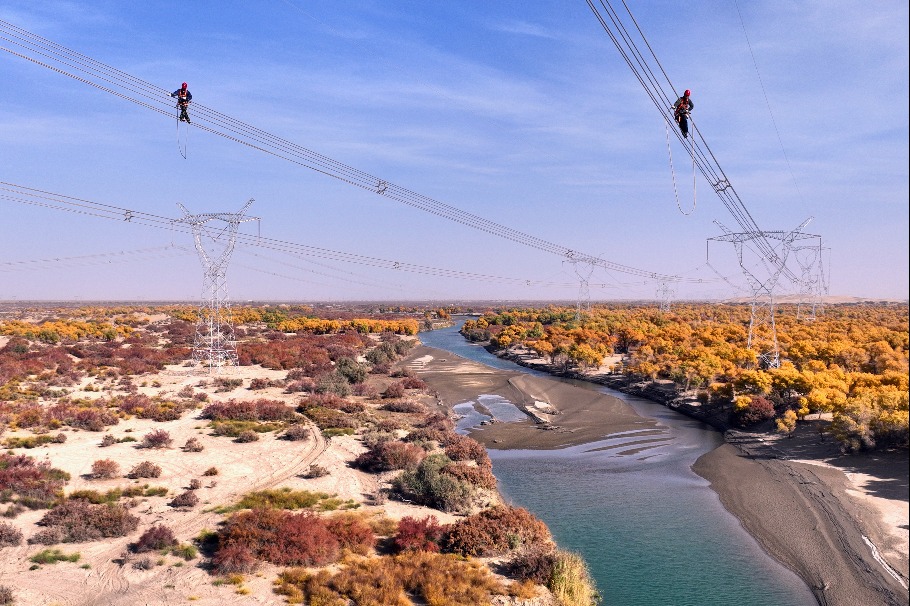Plastic in the sights of young researchers

Organizers of a major international student technology competition are looking forward to hearing the ideas of the next generation of scientists after the British International Education Association, or BIEA, launched its 2020 STEM Youth Innovation competition.
In 2020, the focus is on the fight against plastic pollution.
The competition to encourage young people's interest in science, technology, engineering and mathematics-together known as STEM-comes off the back of a hugely successful 2019 staging, which saw one million students worldwide register interest and 33,000 schools, including many from China, take part.
Last year the theme was drone technology in wildlife conservation projects. Teams from Macao and Beijing reached the final stage. Major prizes were won by students from Hangzhou Shanghai World Foreign Language Primary School and No 2 Secondary School Attached to East China Normal University.
"I always hoped we'd capture people's imagination but to have such numbers and such high-quality entries from all around the world was astounding," David Hanson, STEM chairman at the BIEA, told China Daily.
"This year I think it will be bigger than before, particularly in terms of China because I've been to Beijing and met the Soong Ching Ling Foundation and they'll help manage regional events nationwide.
"Our themes are never accidental. In our first year, there had been a few natural disasters, so the theme was how to use technology to help people in crisis regions. Last year it was endangered species, which really caught the zeitgeist, and this year it's plastics, because everyone can see how big that problem is.
"The themes reflect the passions of young people, and we're saying: Don't be overwhelmed by the state of the world, we have the technology, you might find the solution we've not found yet."
The competition is divided into three categories, covering ages from nine to 17, with an overall first prize of $6,500.
New answers
The prominence of plastic pollution is partly due to television programs such as Blue Planet II and the efforts of activists such as Greta Thunberg, but Hanson said the competition aimed to encourage creativity rather than focus on negatives.
"Demonization of plastic is not the answer," he said. "Plastic can do things no other material can do, so we can't get rid of it altogether. We want people to think about how to use it smarter, better, and less intrusively."
Heidi Burdett is a marine biologist from Heriot-Watt University in Scotland, whose work deals directly with the issues of ocean pollution and discarded plastics.
She told China Daily she was thrilled by the focus of this year's competition.
"Engaging that young audience is really important and I'm astonished by how much they already know," she said. "I think they're far more informed than some of the older generation and know more than we give them credit for."
The so-called Blue Planet effect has seen China face up to and take significant steps to deal with its own plastic problem, something Burdett said should encourage all other nations.
"Someone needs to lead this, so if a huge country like China can do so and take this on, other countries will follow," she said.
Applications for the competition's regional heats close on March 31, with the international stage of the competition running from April to June, and the grand finale in the United Kingdom in the summer.
Today's Top News
- Residents' needs given priority in urbanization
- US tariff war a wild goose chase
- Xi congratulates Jennifer Simons on election as Surinamese president
- Australian PM's visit aims to boost cooperation amid global challenges
- China says response to Japanese planes' actions reasonable, professional
- Wang calls Rubio meeting constructive






























